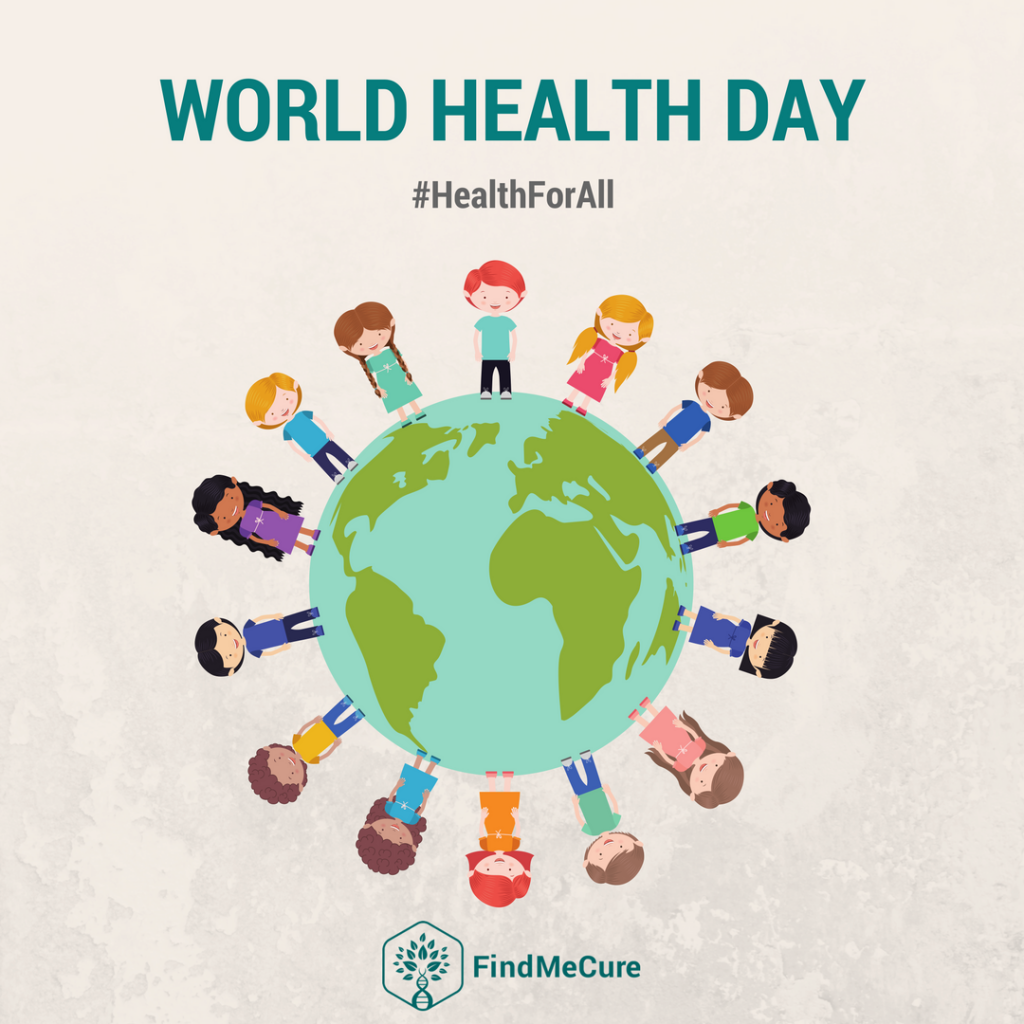World Health Day

It’s the 70th World Health Day, which also happens to be the World Health Organisation’s 70th anniversary. Why? Because on the 7th of April 1948 after years of lobbying United Nations delegates finally got a resolution to pass calling for an international health organization to be created.
However, the word “international” was intentionally changed, hence why we call it the World Health Organisation, instead of the “International” Health Organisation to emphasize the scope of action the organization takes and the values behind their mission.

WHO successes through the years
In its 70 years WHO managed to do a lot – and that’s an understatement. Eradicating smallpox is no small thing, this being the first victory of humankind over a deadly disease. WHO played a huge part in setting health policies that eventually led to increasing of life expectancy from 48 years in 1955 to 69 years in 1985, a significant decrease in infant mortality in the same time period and bringing the polio virus to the verge of extinction.
And now, WHO is fighting the good fight in the efforts to end the AIDS pandemic. It worked with national governments to make the pharmaceutical industry lower the price of treatment from $15 000 a year/patient in more well-off countries to $350 in the developing world. WHO aims to halve the maternal mortality rate by 2020, relieve the global burden of tobacco-related diseases, eradicate measles and work with governments to promote healthy lifestyles by introducing national programs for monitoring, education and community-based efforts.
WHO and clinical trials health policies
WHO has a long history of supporting medical research and clinical trials, as well as advocating for ethical regulations and transparency. Its Research Ethics Committee is an establishment that upholds the highest ethical standards in the research projects supported and funded by WHO.
Not long ago, in 2006 WHO set out to solve a problem concerning the lack of universally agreed upon standards for the registration of clinical trials. You see, a clinical trial may appear on more than one registry with different elements of the information about it present. This makes processing data unnecessarily difficult for a number of institutions interested in the particular research findings, and even more difficult for doctors or patients looking to get involved in the trial. It obscures transparency and creates ethical dilemmas – what is the minimum amount of information that needs to be accessible to the public?
In 2006 WHO came up with “Trial Registration Data Set” of 20 items[1] (currently – 24), stating that all clinical trials need to be registered and there need to be universal criteria for that. A year later the International Clinical Trials Registry Platform (ICTRP) was launched, where anyone could (and still can) view detailed information about clinical trials otherwise registered in a number of different international registries.
This made the whole process of finding a clinical trial, whether you’re looking to participate in one or need the date for research or any other reason, easier, more comprehensible, informative and above all – ethical. “Registration of trials promotes scientific and ethical integrity and makes research more honest. When the system is up and running there will be no hiding of results,” explains Dr. Patrick Unterlerchner, WHO Health Systems Analyst.
In 2015 WHO made yet another step towards transparency in clinical research, by calling for full disclosure of results from clinical trials, whether they were successful or not.
“Our intention is to promote the sharing of scientific knowledge in order to advance public health,” says Dr Marie-Paule Kieny, WHO Assistant Director-General for Health Systems and Innovation and further explains that anything other than full disclosure leads to misinformation, which in turn leads to sub-optimal public health solutions and – unnecessary costs for everyone involved.
Following concerning numbers of underreported results, Dr. Kieny stresses how important the participation of every single person involved in the clinical trial is, in order to lower the risks not only for patients but for the general public as well.
But why are we telling you all of this? Is it because it’s the most interesting part of the 70 years of WHO history? Well, personally I prefer the genesis with all the drama around the initially rejected proposal for a global health organization under UN… The thing is, we’re sharing these facts because they reflect the values behind WHO and their mission, but they also speak to our own aims and beliefs.
FindMeCure exists to make clinical trials more accessible not only for the people who can directly benefit from an easier and comprehensible process of enrollment. It also exists for everyone out there who could at some point need the drugs and treatments being tested or the scientific findings that come out along the way.
[1] http://www.who.int/ictrp/network/trds/en/
Article by Nelly Katsarova

